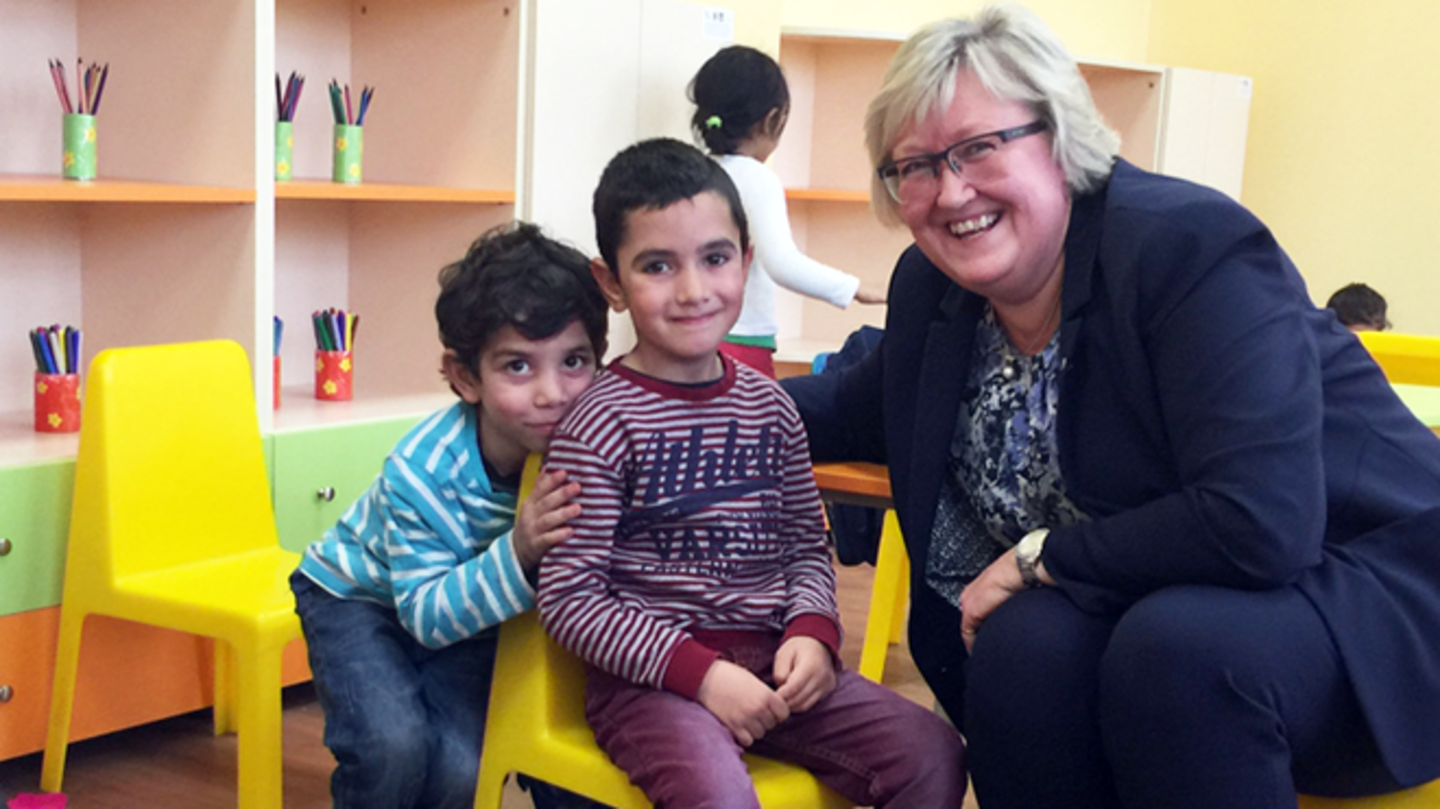This article was originally published on the Norwegian Ministry of Foreign Affairs’ website: https://www.regjeringen.no/en/aktuelt/preschool-for-roma-children-in-bulgaria/id2476145/
“Education is the way out of poverty for many Roma people in Europe. Through the EEA and Norway Grants, Norway supports measures that enables Roma people to improve their living conditions,” said Norwegian Minister of EEA and EU Affairs Elisabeth Aspaker at the opening.
Starting school at an early age increases Roma children’s chances of completing their primary and secondary education and potentially continuing on into higher education.
In Bulgaria, the situation of Roma is challenging. Roma children are often not fluent in the Bulgarian language when they start school. This is partly due to the limited access to pre-schools and the fact that Roma people often live in concentrated areas isolated from the Bulgarian-speaking majority in the country.
Giving Roma children pre-school education and language teaching is important, as it will prepare the children for successful entry into elementary school and the crucial first years of school.
The Fakulteta district in Sofia is the Bulgarian capital’s biggest Roma neighbourhood. The area has a population of about 35 000 Roma people. There is one public school in the area, with a capacity of 1100 students. More than 90 percent of the students are Roma.
"Education for all"
Supported by the EEA and Norway Grants, the capacity of the school’s pre-school programme has been expanded. Through the EEA and Norway Grants, Iceland, Liechtenstein and Norway support important initiatives to improve the lives of Europe's Roma citizens.
"Education for all is crucial in order to eradicate poverty. I am confident that this project will encourage Roma families to enroll their children in pre-school. In the long run, this will contribute to reduce school dropout rates," said Aspaker at the opening.
The project has received a grant of about € 305 000 from Iceland, Liechtenstein and Norway through the EEA Grants. Through the project, new classrooms equipped especially for preschoolers and a canteen have been constructed. A warm meal is being served at school to give the students energy to keep going every day.
The project aims to create dialogue between the parents and the school so that the parents understand the value of education and work to keep their children in school.
Bulgaria is the poorest country in the European Union, and this brings a number of challenges in several areas. The Roma population make up an estimated 10 percent of the 7.2 million people living in Bulgaria. Most of them live in deep poverty.
Through the EEA Grants, Norway support a number of initiatives aimed at improving the living conditions for Bulgaria’s Roma population. To this day, 195 projects addressing Roma-related issues have been allocated a total of €16.2 million through the EEA and Norway Grants.
More
Read more about the Bulgarian ‘Educational inclusion, health and social development’ project
Read more about the Bulgarian ‘Children and youth at risk’ programme
